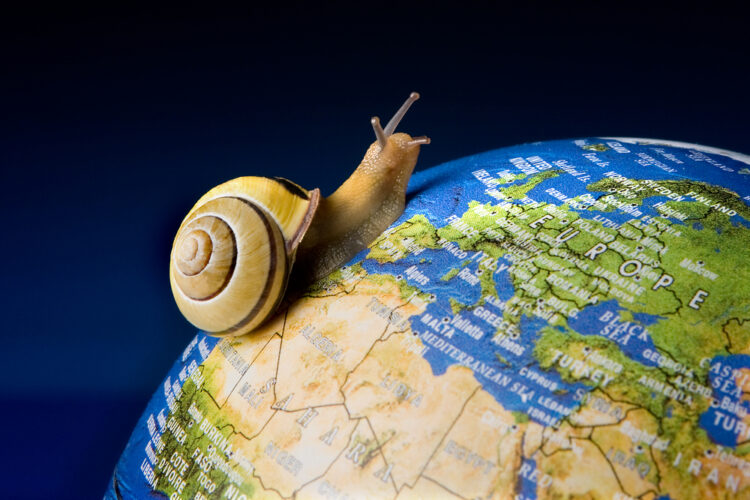It was Sri Lanka that changed the way I travel.
I can’t remember where I was on the island when the realization came, and that was precisely the problem. Every town was blurring into the next, and I was wasting half my time in hotel foyers checking in or out, or on buses moving from one site to the next.
Don’t ask me what Sri Lanka is like because I have no idea. I don’t know what it feels like to live there, to stroll the streets, shop in the markets, chat with the locals, or even chill on the beach. Everything was about seeing the next temple, admiring more ancient ruins, taking photos, and moving on to the next must-see destination.
As a singleton, I’m great at spending the days alone and exploring at my own pace. But dinner for one every evening, or sitting alone in a bar trying not to look like the local hooker – no thanks. So I often join tour groups to meet other solo travelers. The downside is that they generally want to show you all the highlights so that the pace can be relentless and ultimately unrewarding. It was time for a rethink.
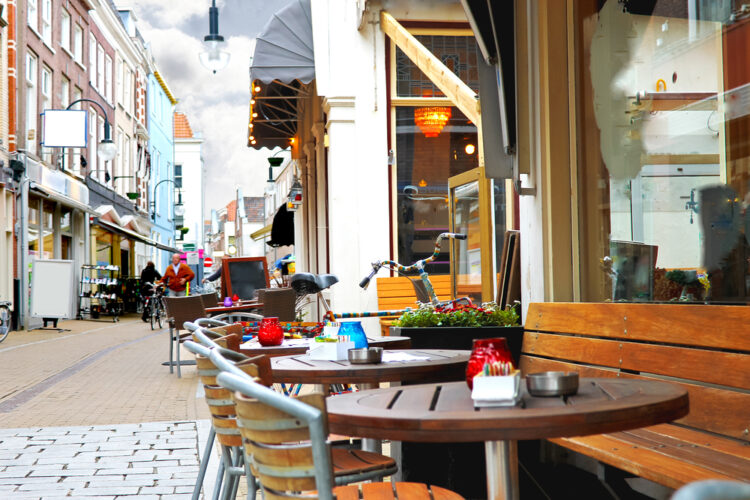
For my next trip, I spent three weeks in Canada, immersing myself for a week each in Montreal, Ottawa, and Quebec. I debated visiting Niagara Falls, too, since it was so close. Then I realized I was falling back into the trap of trying to cram in too much. Rather, miss some things out and pay more attention to your chosen ones.
I was apprehensive about running out of things to do, but doing things wasn’t the point this time. The beauty of slow travel is that you get a feel for a place instead of just skimming the surface and seeing the highlights. I find the best local bakery, and after a few days, the owner begins to recognize me. Some evenings, I eat in a bar while reading a book. Do I feel embarrassed to be alone? Not at all, especially if I start chatting to the staff. Sometimes, I buy food and prepare my own dinner, forcing myself not to be constantly on the go.
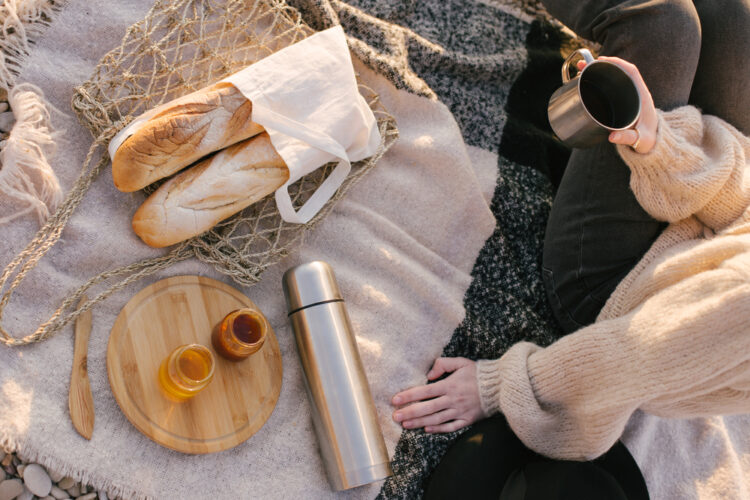
Soon, you begin to feel at home. And after a few days, you find yourself giving directions to other travelers and feeling smug because you’ve integrated so well into the neighborhood.
On slow journeys, you interact with people you wouldn’t meet if you were on a tour. You’re more open to encounters because it’s human nature to connect, so you start chatting to another visitor in the museum, or another traveler on the train.
Sometimes, you might wake up with no plans for the day at all. That can feel daunting if you’re used to a full, organized agenda. But it can be wonderful to start walking and follow your nose. Investigate that little cobbled alley. Find out what that pretty shop is selling. Sit on a bench to people-watch for a while. Or jump on a bus and see where it takes you.
You can visit lesser-known sites like quirky museums or galleries with more time in one place. You can do the heavy hitters too, but choose off-peak periods that are quieter and sometimes cheaper. Madrid’s Prado Museum, for example, is free from 6-8 pm on weekdays.
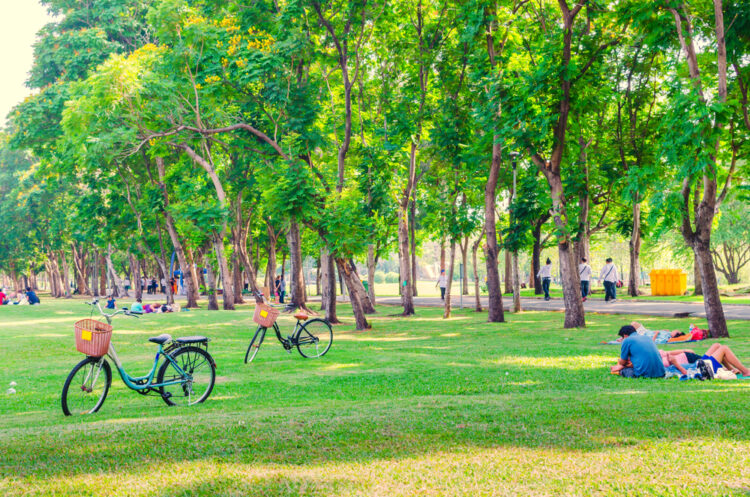
It’s fun to visit theatres and cinemas too – I’ve had wonderful evenings watching Billy Elliott in Budapest (luckily with English subtitles above the stage), and watching a show by Cirque du Soleil students in Quebec.
If you’re planning to spend an extended time in one place, make sure you pick a good place, of course. Taking it easy is one thing, but boredom shouldn’t be on the agenda. Think about what you prefer – the bustle of a city with lots of things to discover, a quiet town or village with picnics in the park, the restive beauty of the countryside with strolls by the river, or a beach resort and yoga on the sand. There are no rights and wrongs, make sure your choice will feed your soul.
Tips for successful slow travels
Make yourself at home: Choose an apartment rather than a hotel. You’ll soon feel restless in a room 30m square, so opt for a bigger space with a fridge, a hob and microwave, perhaps a washing machine, a lounge, and a balcony for people-watching. Pack a bottle opener because even fully furnished places tend to skip this basic necessity. Plus, the right electrical adapter and a universal bathroom sink plug, because they’re often absent.
Wheels, not wings
If you’re traveling between different destinations, try to go the slow way. Make the moving part of the journey and admire the scenery. You could even hop off in a place you’re passing through if it looks worth exploring. The buses and trains in some countries are excellent, with the bonus of avoiding stressful airports. If you’re in a city with a public bike service, download the app and pedal.
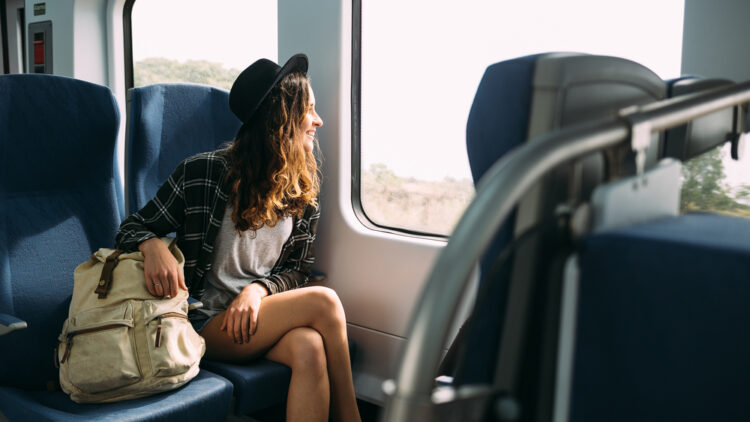
Chat with strangers. There’s a difference between going solo and feeling isolated; unexpected conversations can be a highlight.
Dating apps can be risky, especially for women, so I never use one when I’m traveling. But I’ve had great dates with people visiting Santiago (my new home). It hasn’t led to love, but it’s good to meet other globetrotters, show them around, and chat in my language for a while! Just be careful since stories are emerging in some countries – chiefly Colombia – about men who have been drugged and robbed by local ladies.
Internations are safer and designed to help people make friends when they move to a new city. It’s useful if you’re based somewhere for a while since you can join events such as bar nights, theatre evenings, wine tastings, and hikes.
Get involved in the community: If you’re embedding yourself in a place long enough, get involved with the locals. If you’re religious, find the local place of worship. Answer the job advert for bar staff or waiters. Or design your trip around a working opportunity – an orangutang orphanage in Borneo or seasonal fruit picking somewhere in Europe.
Contemplate the future: Spending a lot of time alone in a different place gives you a unique opportunity to think about your life and contemplate a different future. Are you happy with the life you’ll soon return to? Has the charm of the city or little village in whichever country you’ve chosen sparked a niggling feeling that life could be better? Sit with that thought for a while.
Your slow travel may trigger a permanent change of pace, job, or country.


